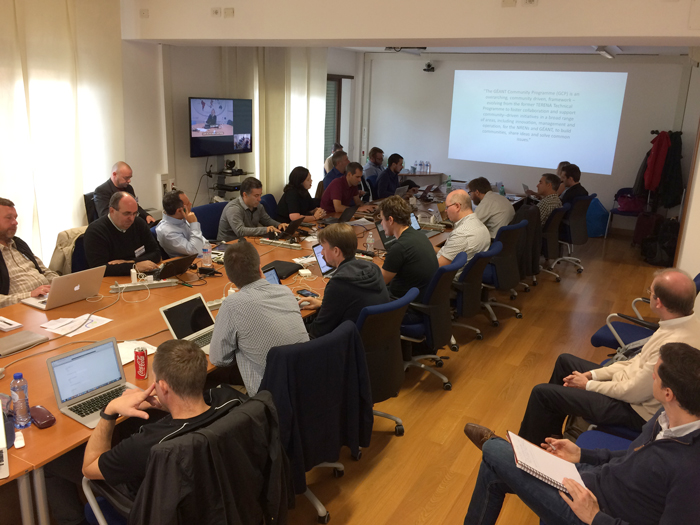Evolution in action: the service management special interest group explores research and education networking services and processes.
The times they are a changing. As usual. Changes in the market and customer needs mean that national research and education networking organisations (NRENs) need to ring the changes, with an impact on their role and mission.
More than ever NRENs are moving from producing their own services and dealing only with services that are in a pre-commercial stage to having an increasing role in procurement and provisioning commodity services. They are also increasingly focusing on internal processes to improve what they do and why.
These were the key observations emerging from the well-attended meeting of the GÉANT Special Interest Group on the Management of Service Portfolios – SIG-MSP, which was hosted by GARR in Rome on 12-13 October 2016.

The growing role or potential role in procurement for NRENs, and for research and education networking community through GÉANT, was highlighted in several presentations and discussions. The GÉANT clouds team reported on the recent Infrastructure as a Service (IaaS) procurement that GÉANT undertook on behalf of the community, as a prelude to a co-located clouds workshop. Based on lessons learned, there was a proposal to develop a ‘European R&E cloud broker service’ by standardising procurement processes so that they could be scalable, predictable, repeatable and sustainable. And a white paper was presented, highlighting the need for boilerplate texts that NRENs can include in tendering documents and reflecting policy and technology-related steps to simplify procurement while ensuring proper use of the networks.
The NRENs’ role towards commercial providers and towards customers/members is changing too. An analysis of the Irish NREN’s operations shows not only that the HEAnet network is a strategic national asset, but also that the organisation provides good value for money so its customers/members can be reassured that they do not need to turn to commercial providers instead. And the Dutch NREN SURFnet is engaging campus ICT managers in the development of commodity services, so harnessing ‘pull’ requirements for new services from its constituency, and keeping them engaged in ongoing updates regarding functionality requirements and priority setting.
How to set priorities when investing in the development of new services also came up in a presentation of Jisc’s relatively recently rolled out process to determine whether proposed new services have a sufficiently strong business case and analysis of the technical, operational, financial and marketing context. This led to a proposal to arrange a more in-depth discussion at a future event, with the idea of developing best practices on business decision making processes, prioritisation and so on.
A similar focus on internal process improvement was evident in a review of the AARNet experience of using its 4-year-old customer relationship management tool, and a discussion about how NRENs go about engaging research communities and exploring their needs.
And as those needs keep changing, feeding into NREN developments, we can expect the NREN ring of bells to keep changing too.
The meeting agenda and slides (and eventually notes) are on the SIG-MSP wiki.
The next SIG-MSP meeting will be in spring 2017 – date to be confirmed. As with all special interest groups, the main purpose is to build a trusted network of community contacts and to exchange ideas, experiences, best practices and advice. Join the mailing list, come and join us!








Add Comment